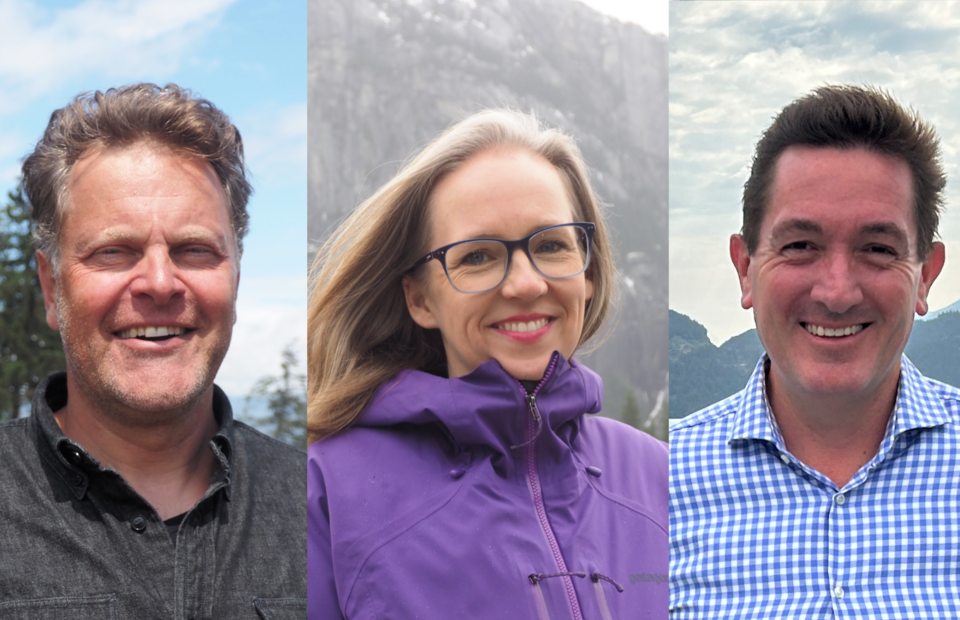The provincial election is around the corner. The Squamish Chief asked the three candidates running for Member of the Legislative Assembly (MLA) in West Vancouver-Sea to Sky about their strategies for addressing climate change resilience, particularly in collaboration with the Sḵwx̱wú7mesh Úxwumixw (Squamish Nation).
No more fossil fuels
Jeremy Valeriote, BC Green Party candidate, said the province must address the risks of climate change, particularly for Indigenous communities.
“When we talk about resilience in the face of climate change, we're talking about adaptation,” Valeriote said. “If a natural disaster happens, the provincial government has to work closely with First Nations to deploy emergency management resources while respecting Indigenous rights and title.”
Valeriote called for halting new fossil fuel projects, including Woodfibre LNG. “We would open a conversation with the Sḵwx̱wú7mesh Nation about how to ensure they still see the benefits that would have come from that project, through clean, green economic development that doesn’t damage their territory.”
He suggested the $225 million in benefit payments could come from industries like clean tech or renewable energy.
Fireproofing the future
BC NDP candidate Jen Ford said British Columbians are already seeing the effects of climate change. “This year was the worst forest fire season on record, with major floods, drought and extreme weather events,” Ford said.
“These extreme weather events are just going to become more frequent. We need to get ready.”
Ford pointed to programs like the Community Resiliency Investment Program and the Community Emergency Preparedness Fund, which help Indigenous communities and local governments reduce wildfire and flood risks.
“I have been working with the Squamish Nation to get ready for the future,” Ford said. “We won’t stop until the job is done.”
Building bridges, not barriers
Yuri Fulmer, Conservative Party candidate, said his experience working with Indigenous communities has spanned three decades through business and philanthropy.
“Collaboration with Indigenous communities would be a priority,” Fulmer said.
He said his company, Fulmer & Co., holds positions in nine climate-focused businesses, including Intelligent City, which develops solutions for housing, and ChopValue, which repurposes used chopsticks into usable wood products. “These companies are also often major employers of Indigenous people,” he said.
Fulmer noted his foundation’s work with Indigenous communities, including the Fulmer Award in First Nations Art. “Climate change is obviously affecting us all, but we must recognize the disproportionately adverse effects it has on Indigenous peoples,” Fulmer said.
“I will help bridge the gap between Indigenous communities—the traditional stewards of this land—and the government.”
People can vote in the nearest district electoral offices, advance voting places, and voting places for Final Voting Day on Oct.19.
Bhagyashree Chatterjee is The Squamish Chief’s Indigenous and civic affairs reporter. This reporting beat is made possible by the Local Journalism Initiative.




